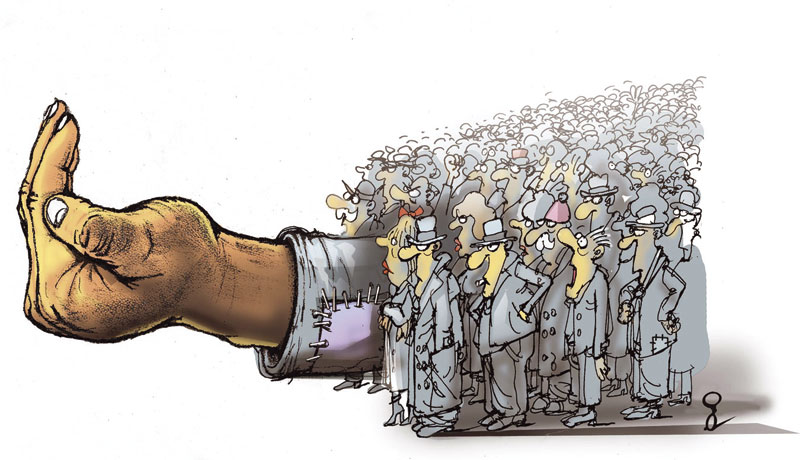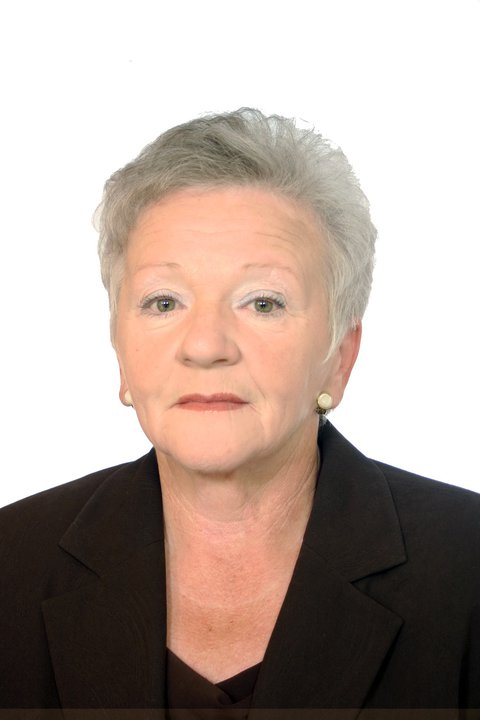
The peace that the Yugoslav people once built has been destroyed; all because of the stereotypical claim that the hatred between the nations of Yugoslavia was ever-present. This hatred was fabricated by the ruling elites who wanted to teach Slavs how to be civilized and democratic.
Transition marks change. In order to reach the act of reconciliation itself, the three constituent peoples of Bosnia and Herzegovina should first identify the obstacles that are blocking the road toward achieving it. I believe this is the only efficient way to find a solution to our problems.
“It is too early to expect unity and togetherness from the people of BiH because the images of war are still fresh and alive in the minds of our parents. It is unrealistic to expect to them to simply get over everything they have seen and experienced, and, for that reason, we should not label them as nationalists or condemn their opinions,” says Ivana Pavišić, fourth year high school student from Banja Luka.
“I believe our primary mission as youth is to nurture human relationships, establish cooperation, and build new roads that will take us toward unification once again, if not in the territorial sense, then at least in our hearts and minds,” Ivana continues.

The fact is, people have not reconciled since the war because there have been neither serious attempts nor intensive work being done to achieve this. Everything happens “ad hoc”, including our adaptation to the current situation. Reconciliation is a burning issue on politicians’ everyday agendas, but little attention is actually given to the issue on the grounds that there are more pressing problems to address.
“Every transition is a process that takes time, will, strength, knowledge and experience. In this sense, I believe we are still not well-versed in the realm of reconciliation, even after all these years,” says Danica Bartolić, youth activist from Laktaši Municipality.

In the midst of the chaos that has been haunting us for the last decade, only one question interests me: “Do we not remember that the republic was at the epicenter of multiethnic society and we once lived in harmony?” The unity of Yugoslavia was superior to other nations of that time, and a symbol of that unity was the cooperation and fellowship of its youth. When looking at today’s image of youth engagement and their agility and activeness, another question arises: “Where are our youth today and what do they contribute?”
Nikola Todorović, basketball prospect and a student at the Natural Sciences and Mathematics Faculty in the Laktaši municipality, brings back hope that the youth do not have to be lost to today’s system: “The young people of our country carry the future in their hands and are an incredibly important link in the formation of the chain of togetherness, multicultural respect and appreciation. However, I understand that there is a significant chance that parents are raising their children with values of nationalism and patriotism, which can push us to the brink of our moral intelligence. If we continue to raise future generations to become extremists and totalitarians, there is no chance for real progress.”
Regarding youth-related issues, I felt the need to seek out the opinions of experts who are in contact with this population on a daily basis. “Young people in BiH face a number of problems, many of which governmental institutions are largely responsible for. All levels of government lack a programmatic and strategic approach to the improvement of the youth’s current situation. I consider it a failure that young people’s patriotism is being expressed through nationalism, but it makes me happy when I see aware and responsible youth who express solidarity with their peers,” expresses local high school counselor Sanja Hajder.
When discussing solutions, we should look to those who said “no” to the madness and injustice, and to those who decided to remain human during evil times. There is no one left to blame but ourselves. If we do not realize this in time, the anchor on our economy, our businesses and our finances will drag us to the bottom and will inevitably cause catastrophic consequences for our already shaky foundation of reconciliation.






